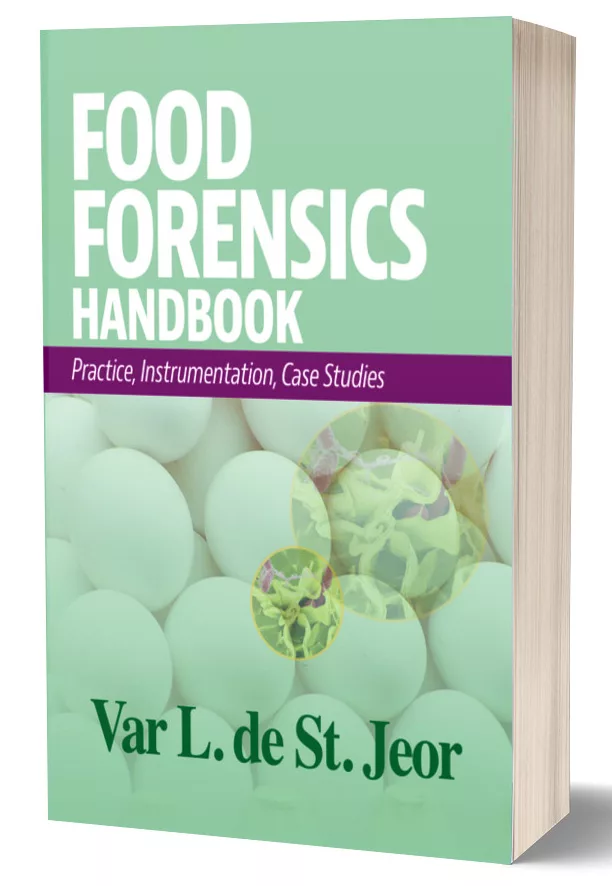COVID-19
How to sanitize to prevent COVID-19—and decontaminate after a positive
Learn tips to strengthen your plant’s cleaning protocols for the new coronavirus

If your plant has a suspected or confirmed COVID-19 case, that's no time to cut corners on decontamination.
Photo courtesy of Quest Resource Management
Every industry is struggling to keep up with the constant changes caused by the COVID-19 outbreak. These are unprecedented times with unique problems. One constant in this torrent of new challenges is that safety is priority one right now. Food manufacturers are a critical element of the food supply chain in the U.S. and have had to stay open during the outbreak. The ramifications of having to shut down even one plant have been seen, and the ensuing ripple effect has huge implications for all of the businesses involved.
With employee safety and stability of operations at the forefront of all of your daily procedures, these are the two key elements of effective COVID-19 prevention that food manufacturing companies need to adhere to:
Leveraging enhanced cleaning procedures
All food manufacturing plants must follow the current good manufacturing practices and FSMA. The FDA has published a complete set of guidelines, and food manufacturers should update their internal Infection Control and Occupational Safety and Health plans to reflect enhanced cleaning protocols.
- Ensure employees wash hands repeatedly using antimicrobial hand soaps and sanitizers.
- Provide multiple breaks to allow employees to wash hands throughout their shift.
- Install touchless 60% alcohol sanitizer dispensers in multiple locations.
- Clean all food contact surfaces per FSMA.
Food facilities are required to use U.S. EPA-registered sanitizer products in their cleaning and sanitizing practices. FDA Food Code defines sanitizer as “a substance, or mixture of substances, that reduces the bacterial contamination of inert objects or articles, or equipment and utensils, and other cleaned food-contact surfaces by at least 5 log units, which is equal to a 99.999% reduction. Sanitizers for food-contact surfaces or sanitizing rinses are formulated in a way to be used without rinsing; the chemical residues on the food-contact surface are below the level that would represent a hazard for the consumer if these residues were to be transferred to food.”
- Use CDC-recommended, EPA- and FDA-approved disinfectant (which kills bacteria, fungi and viruses) for all other high-touch areas.
- Clean touched surfaces in workspaces and breakrooms (e.g., microwave or refrigerator handles and vending machine touchpads) at least once per shift.
- Wipe down tools or other equipment at least as often as workers change workstations.
- Regularly clean interior and door handles of your shuttle or transportation service offered to employees.
Call in the professionals for a suspected or confirmed COVID-19 case
Even with your best efforts, chances are you will encounter confirmed or suspected cases. This is not the time to cut corners. You have one shot to kill the virus and restore a sanitary working environment. In these situations, you need to call a professional decontamination service experienced in sanitizing food supply chain facilities. These companies are licensed and experienced with disinfecting all surfaces that suspected cases have come into contact with, including food contact areas.
Using professional decontamination companies has definitive advantages over just tasking your traditional cleaning crew with the enhanced cleaning required. Ideally, you want to research the companies best suited for your operation, and have set, contracted rates ahead of time. That way you don’t have to waste time in the event of exposure.
Using licensed, professional decontamination companies, rather than janitorial companies for example, have the following benefits:
- Experience with decontamination and disinfection.
- Employees follow rigorous cleaning and sanitizing SOP, wearing full PPE.
- Fast deployment, usually in less than 24 hours.
- Available to complete the disinfection at night, between shifts, and are used to working around your schedule to minimize business interaction.
- Extremely effective disinfection protocol allows employees to go back to work within an hour of the completion.
- Use specialized equipment to reach all contact surfaces, all high-touch surfaces, and saturate the cleaning products over large surfaces faster.
- Have a supply of N-list disinfectant specifically designed for food supply chain operations.
- Hazardous waste is handled in safe and environmentally sound manner:
- Not thrown in the trash
- Always contained and stored in seal container
- Transported per DOT regulations to be fully destroyed
- Recycled as a source of energy instead of landfilled to help you maintain a lower environmental footprint while completely eliminating the virus, preventing any chance of further contamination.
The impacts of the COVID-19 outbreak aren’t going away. Until a vaccine or treatment plan is developed, companies will have to continue to operate under these new, tighter restrictions. Planning and training, which are already staples of the industry, are critical. Putting a plan together now is the only real way to prevent infection and handle any potential or suspected exposures in the future. Make sure that your plans involve the prevention methods listed above.
Looking for quick answers on food safety topics?
Try Ask FSM, our new smart AI search tool.
Ask FSM →







